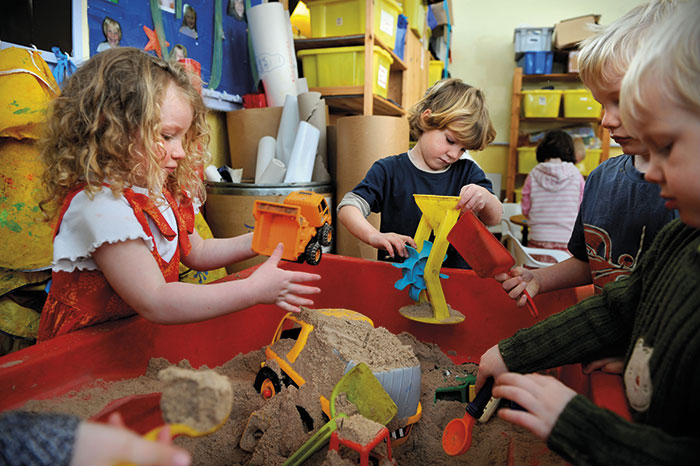
Earlier this month, the Education Select Committee published a searing critique of the government’s early years policy.
The report of the committee’s inquiry into life chances accused the government of “entrenching disadvantage” through a “lack of strategic direction”, and urged it to invest more in the first few years of a child’s life.
This focus on the early years is to be welcomed.
They help to shape the person the the child will become and the opportunities they will have. It is also often a difficult time for parents, trying to balance dedicating time and energy to their child with providing financial stability.
The attainment gap also first takes hold in the early years.
We see a big difference in the school readiness of less well-off children and their more advantaged classmates.
Disadvantaged five-year-olds are estimated to be more than four months behind their peers, a gap that widens during the rest of their time at school.
These differences in school achievement act as a block on social mobility and have consequences for the life chances of those from disadvantaged backgrounds.
Research has shown that five-year-olds with poor vocabulary are more than twice as likely to be unemployed in their 30s.
If we don’t act to close these attainment gaps, we risk deepening the social mobility divide. The social and economic arguments for investing in the earliest years of life are compelling.
However, education and childcare is a tricky policy area to get right, as it cuts across many complex aspects of social policy.
Most importantly, and as the committee’s report points out, early years policies must be targeted at the most disadvantaged families and young people.
While the 30-hours’ childcare policy has helped many parents to go back to work, there is a danger that it’s been rolled out at the expense of the poorest toddlers.
‘The Education Policy Institute has highlighted how in some local authorities the increasing focus on the entitlement to childcare hours for three- and four-year-olds has come at the expense of the poorest two-year -olds.’
The Education Policy Institute has highlighted how in some local authorities the increasing focus on the entitlement to childcare hours for three- and four-year-olds has come at the expense of the poorest two-year -olds.
The most important thing we can do to close the attainment gap early is to make sure toddlers from disadvantaged homes have access to high-quality, evidence-based nursery provision, with well-trained and skilled staff.
The early years pupil premium offers an important financial supplement to early years settings catering for the poorest children, and should remain as a key lever for improving pre-school development.
Family life is also a crucial part of the equation, and finding the best ways for parents to support their children’s early learning, especially in language and literacy, should continue to be a key focus of early years policy.
We welcome seeing the Department for Education, Damian Hinds and Nadeem Zahawi make the Home Learning Environment one of their key areas of focus.
Their £5m fund – which we are partnering with them on together with Leeds-based charity SHINE – will find out how early years settings can best work with parents to support their children in language and reading at an early stage.
As the committee’s report points out, creating and implementing early years policy that transforms life chances is unlikely to yield quick wins.
Yet the prize is so great that we cannot shirk the challenge. What we need from government is a laser-like policy focus on providing high-quality early years education and great home learning environments for the most disadvantaged toddlers.
With this renewed focus and mission, I’m confident we can close the early years attainment gap and radically improve life chances for thousands of young children.




















